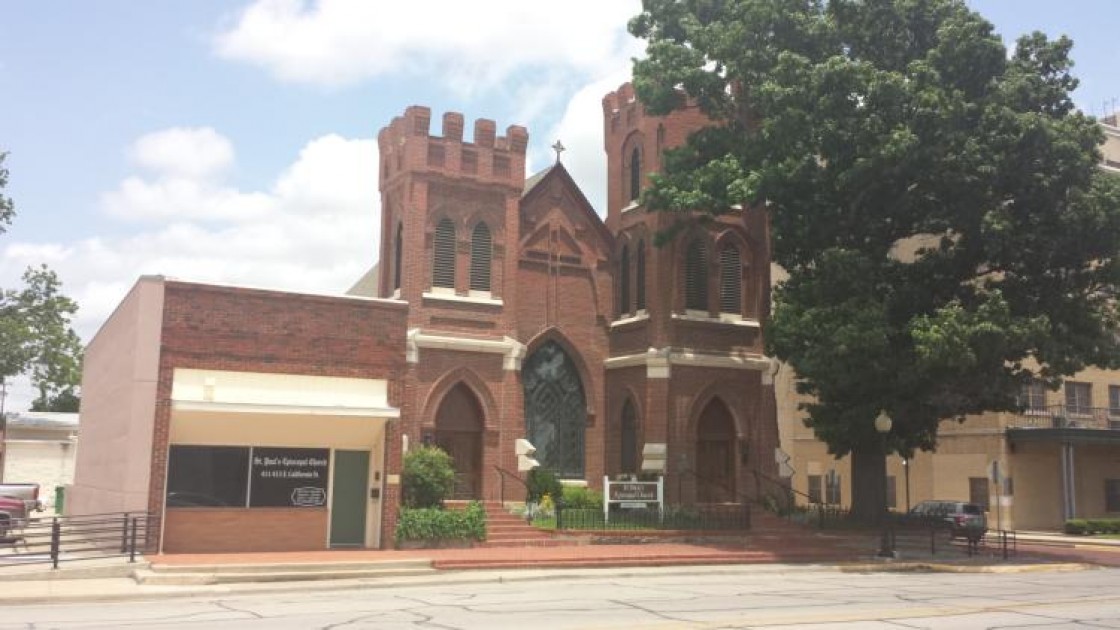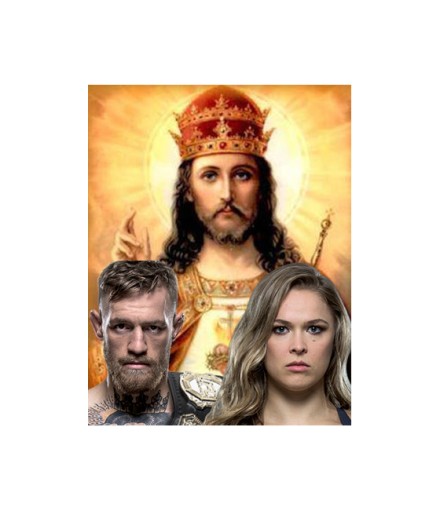In the name of the F, S, and HS. Amen.
I listen to a lot of sports radio—I think it is better for my soul than when I listened to conservative political talk radio where every day I would run the gauntlet and come out with my heart racing and blood pressure sky rocketing due to the stupid things that were going on that day. All week this week there has been much chatter leading up to a UFC fight between Conor McGregor and Nate Diaz.
Now I don’t normally follow Mixed Martial Arts, but I am in the car a lot, and I recently got on Twitter and followed ESPN and some of the various talk show hosts I like and they were all over it. In fact, Conor McGregor was everywhere. I saw Conan O’Brien’s life flash before his eyes as McGregor showed him a new kick that he had been working on that flew maybe an inch in front of his nose. I learned that Conor McGregor is a baaaad man. He was 19-2 and on a 15 fight winning streak. From what he said, he was going to destroy Nate Diaz and there was no other outcome possible. And I believed him.
Well I woke up this morning to here that the unbelievable happened last night and McGregor was forced to submit by Diaz in the second round. So much for the seeming baddest man on the planet. And as I scanned through waiting on the coffee, I found that Holly Holmes lost to Miesha Tate. But this made me think of the last person Holmes knocked out, Ronda Rousey.
Rousey and McGregor had a lot in common. They both where everywhere prior to their fights which they ultimately lost, and both were very quick to talk trash about their opponents. And you know what they say: “Pride commeth before the fall…or knock out…or submission…or whatever.” Pride links these two fighters. Now I’m sure they were contractually obligated to make all these appearances on the late night talk shows and ESPN to create a buzz, but with each of these two people it didn’t take long to understand that they thought they were invincible.
This all makes me think of another person who thought he was invincible as well. He too was on a hot streak and was convinced that he could not be beaten. Day after day he would come before the crowds and taught his opponents easily causing them to cower in fear. Until one day a young boy stood up and decided that through the strength provided by his God, he could defeat the giant. This young boy was of course David and the giant was Goliath.
Shortly after this he was brought into the service of Saul the king and won battle after battle for him. All the praise of David that resulted from his victories drove Saul mad such that we wanted to kill David, forcing him to flee for his life. Fleeing for one’s life tends to prevent one’s head from becoming too big. But when Saul died and David ascended the throne of the king of Israel. And he did a very good job as king. He united all the tribes of Israel into the united monarchy. He expanded their holdings and made them financial kings among their neighbors. He was even one of the few people in all of history that God made a covenant with. Pretty good hot streak.
Then he started to get full of himself and decided that rather than go into battle and lead from the front as was his custom, he would rather sit this one out entirely. And then one day he was looking out his window and he saw that beautiful woman Bathsheba which led to his big sin. Luckily for our story arc, David remembers himself and repents—resulting in the beautiful psalm of repentance Psalm 51. David is a man after God’s own heart because of this.
Each of this people are examples of the danger of pride, but David shows us the remedy for pride—humility. David learned that in order to be great he needed to rely on someone greater than himself—God. And once he became great he was reminded of how he got there and what would keep him there—his reliance on God. He later became the father of his successor Solomon, but this was the beginning of a great line that led to Jesus—the ultimate example of humility.
Jesus as God had every opportunity to take up greatness in the eyes of men. He is God and could have chosen to be born in a great palace such that everyone would know who he was and would easily come to accept his position as Son of God. Yet he chose to forsake all this and be born in the nowhere town of Bethlehem out in a cave where the animals were housed. Humble even from the beginning.
And when it was time for him to ascend his throne, as he told Peter, he could have had legion upon legion of angel ready to help deliver this earthly kingdom into his hand, yet he forsook all this to be humbled with the torture and death of a thief—a sinner’s death for the sinless one. Yet, as we know, this death was how he ultimately triumphed over death and won in the end. He lacked the pride of humanity that would have resulted in great prestige in this world but ultimately would have damned us all. This is how one truly gains the strength to overcome that which would besiege us—by emulating the humility of Christ and putting sin to death.
Notice in the parable he tells of the Prodigal Son. First the son decides that he wants to everything on his own and serves every tie on his way to “greatness” and sets the place on fire as he leaves. And he tries to do it on his own in a city far away from any influence his father might have. But his efforts as null as he ends up in the worst position in which a Jew can find himself—that of tending pigs. And even worse, he found that he envied the pigs that he was supposed to be tending.
But, similar to David, he remembers himself, and seeks to return to his father in the only way he sees left—that of a hired servant with no family ties to his father. This is even lower than that of slave because a slave is one whom the master has taken on and at least is required to feed, clothe, and house. A day laborer has none of these guarantees. He is at the mercy of the master since he does not have to take him on for the day. This is humility. “Father I have forsaken our family name and I am not worthy to bear it, nor can I even make the claim that you owe me anything, but at least let me work for what I need.”
It is in this humility that his father is able to give him the things that he always wished to give him. He wished to show his son love, but he would not accept it previously. He wished to shower him with gifts, but he wanted to take them instead. But now, below rock bottom, he willingly receives all these things from his father.
Beloved, St. Paul tells us that since we are Christian, we are new creations—we are born anew. Children when they are born have the attributes of their parents. We should resemble Christ in his humility—his willingness to forsake all earthly benefits for self and totally give ourselves to the service of the Father that we can truly become great. The world we live in is surrounded by pride. We glorify the boasts of those who build themselves up Conor McGregor, Ronda Rousey, Donald Trump—the list goes on and on. But Christ shows us that this pridefulness can only lead to a fall because it is not true power. There is always a bigger fish. True power comes from a man willing to take up his cross and to take on the sins of the world that they may be forgiven their sins and have eternal life.
Our parable leaves us with an open-ended example—the older brother. He is blind to the love his father has for him and is angry at his father’s response to his sinful brother. He refuses to enter the celebration until he gets what he deserves. Beloved, we are this older brother. Will we allow the father to talk us down and enter with humility into the party, or will we choose to remain in our pride and stay outside. The choice it up to us.
In the name of the F, S, and HS. Amen.

